As chilly winds approach me, I cannot help but think how fun hanging out in the wilderness is going to be. At the same time, I keep thinking of a reliable heating option that not only helps me out in the wild but anywhere in my house.
Thanks to the advancement in the heating industry, I do not have to think further than a portable diesel heater. These heating devices are affordable, fuel-efficient, and, best of all, easy to shift around.
Therefore, I have got you a comprehensive article on portable diesel heaters, from their advantages to how to select one for yourself.
Why Choose a Portable Diesel Heater?
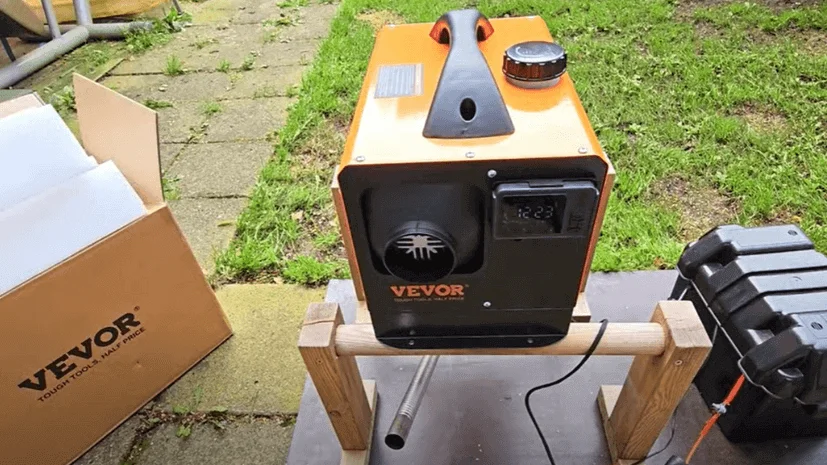
Let’s have a look at some of the amazing qualities portable diesel heaters offer that will make it easy for you to make an informed purchase decision:
Highly Fuel and Cost-Efficient
Whether you buy a diesel heater for your home or your RV, these heating devices are cost and fuel-efficient. Careful engineering and creative manufacturing lie at the very core of this efficiency.
Contemporary diesel heaters can convert 80 percent of the provided fuel into usable heat. To put it simply, diesel heaters turn every 80 out of 100 fuel units into heat, making the best use of every drop. Moreover, molecules of diesel have a higher density than gas, and this makes it economical. Hence, diesel can generate more energy than the same volume of gas.
In addition, portable diesel heaters only require minimal periodic maintenance to survive for years. Not only are they budget-friendly in terms of fuel, but they save you from the strain of repair costs.
Ease of Use and Installation
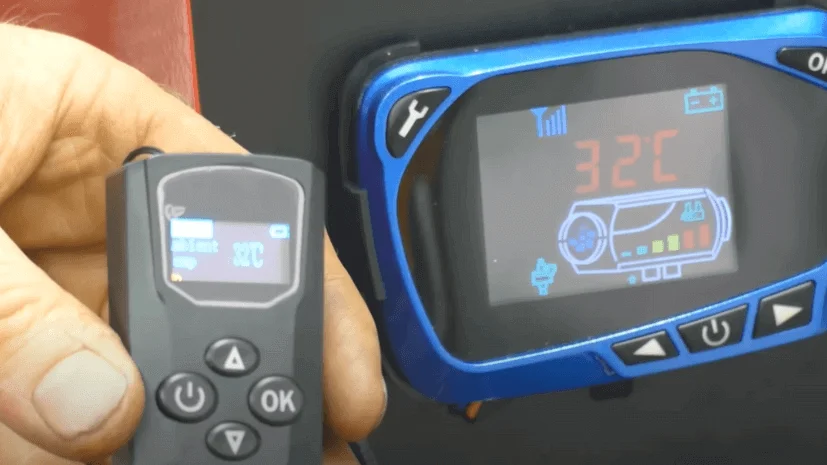
Unlike other complicated heating systems, portable diesel heaters are easy to use and set up. Their functionality is easy to understand and does not have any complex instructions for you to follow.
Some users might be concerned about safety, given the highly combustible nature of diesel. It is safe to say that portable diesel heaters are safe to use, regardless of wherever you place them. All the combustion takes place in a safe and enclosed chamber, keeping you safe.
Operate Quietly and Quickly
Previously, users may have complained about the annoying ticking noise diesel heaters make. However, modern models are somewhat different and make little to no noise. So, you can enjoy a peaceful night’s sleep because your diesel RV heater will operate silently.
In addition to quiet operation, diesel heaters are renowned choices for motorhomes, camping, and garage heating because they can warm up your space in no time. Not only this, but they automatically turn themselves off once the optimum temperature is reached, maintaining the temperature efficiently.
Multiple Sizes and Affordable Prices
Another reason why you should consider buying a portable diesel heater is their wide range of sizes and prices. The market has a number of options to suit your needs and budget. From huge ones for garages to mini diesel heaters for small camping tents, the options are diverse.
Fancy prices do not always mean an instrument is reliable; diesel heaters are a perfect example.
Work Equally Well Everywhere
Changing your diesel heater’s location will not affect its performance. Its creative manufacturing enables it to withstand harsh environments and unpredictable weather conditions.
If you consider outdoor experiences, there is no better choice than diesel heaters for our landing. The last thing you want on your tent walls or other things in your tent is moisture. Dry heat from a diesel heater will save you from this issue, providing a comfortable and humidity-free experience.
These heating devices not only heat up tents and motorhomes; you can consider a workshop diesel heater for your working space. All you have to do is ensure the area has proper ventilation, keep flammable stuff away, and do not leave the heater running for too long without supervision.
How Portable Diesel Heaters Work?
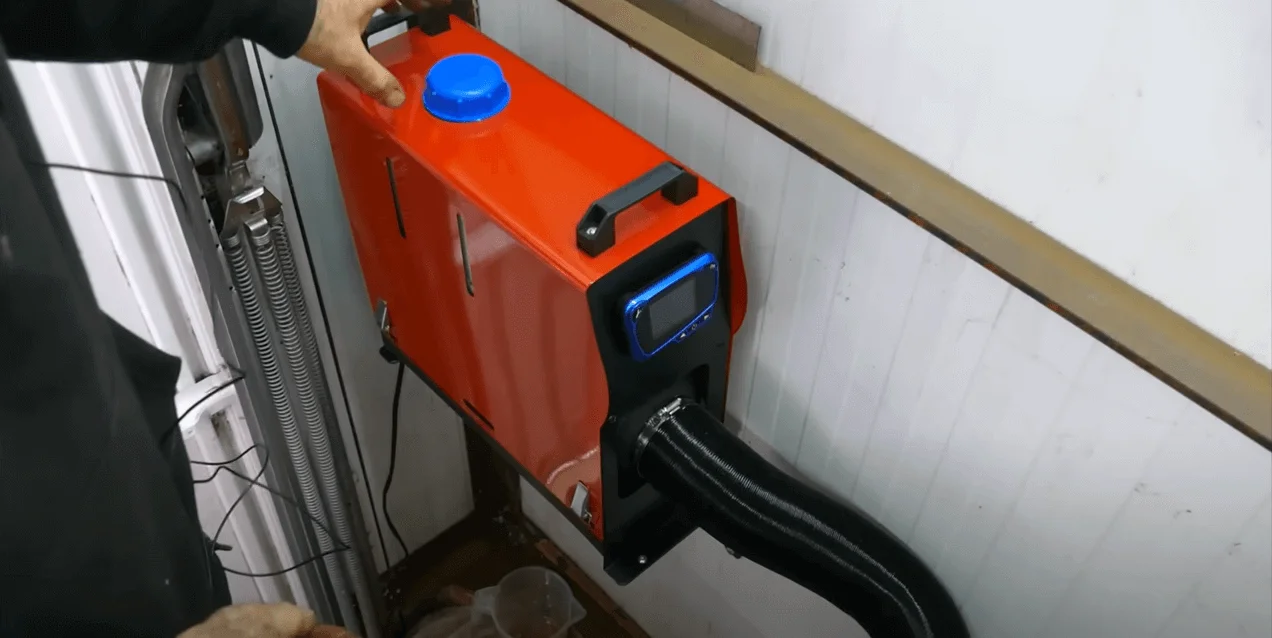
Before buying a diesel heater, you must explore its inner workings and overall functioning. Having this knowledge will help you diagnose and troubleshoot the issues of your device in the future.
The Inner Workings of a Diesel Heater
A pipe draws the cold air from outside into the combustion chamber. The air makes its way to the pre-heated combustion chamber and mixes with the fuel under immense pressure, and the ignition process starts. The chamber is an enclosed space that holds the fumes, protecting the environment.
The ignition process inside the diesel heater generates heat, which then transfers to the surroundings through air or water. While the outlet pipes distribute dry heat, exhaust pipes ensure smooth ventilation of the harmful gases.
Components of a Diesel Heater
A complete diesel heater is an assembly of various small and big components that work in harmony to provide heat.
- Heater’s Case: It is the outermost shell of the heating device that protects its inner mechanism from wear and tear. The manufacturers use durable material for the construction of this part so that it can withstand every kind of environmental impact.
- Air Inlet and Outlet Pipes: Air is a critical component for the functioning of a diesel heater, and so are the inlet and outlet pipes. The combustion process cannot begin if the air does not mix with the diesel mixture. The inlet pipe ensures the smooth flow from outside into the heater, whereas the outlet conveys from the heater to the surroundings.
- Combustion Chamber: Considering combustion is the most important process, and it takes place in the combustion chamber, this component is one of the most critical. Combustion chambers of portable diesel heaters comprise durable and thermal-resistant materials, given the importance of their function.
- Heat Exchanger: You might find this part on the rear end of the combustion chamber. It contains small radiating fins that aid the transfer of heat from the combustion chamber to the surrounding environment.
- Fuel Tank, Filter, and Fuel Pump: The heater stores its fuel in the fuel tank that the fuel pump draws after sieving its impurities through the filter when needed.
- Exhaust System: The exhaust is another critical component of the diesel heater that ensures proper ventilation. The system consists of a silencer that ensures the silent passage of fumes from the combustion chamber to the external environment.
- Control Unit: This unit adjusts the working cycle to meet your requirements by controlling, monitoring, and implementing all heating parameters.
Choosing the Right Portable Diesel Heater
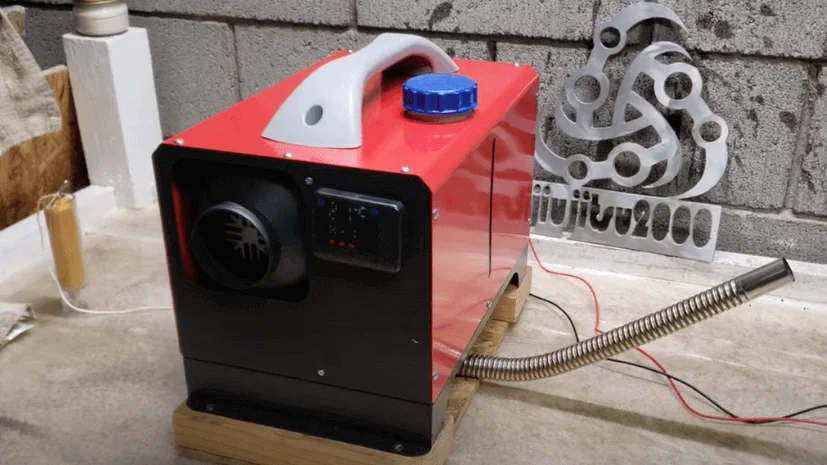
Generally, this is a list of factors that you must keep in mind before purchasing a diesel heater:
Heating Needs
It is a no-brainer that the heating capacity of your portable diesel heater, expressed in BTUs, has to meet your space requirements. Additionally, it should also match the overall climate of your region.
For larger rooms and colder climates, consider options with a higher BTU rating. For smaller areas and milder regions, a low BTU rating will suffice.
Types of Diesel Heaters
Based on where you want to place it, you can choose among two types of portable heaters:
- Forced Air Heaters: Also known as fan-forced heaters, these heating devices are portable units that distribute heat by blowing heated air outside. They are quick to heat the area as the fan propels the air over a heating element and into the surroundings.
- Radiant Heaters: These heaters warm the objects using infrared radiation, like a sun. Less noise production makes these units a better choice than conventional kerosene or diesel heaters.
Size and Portability
When buying a portable diesel heater, you must check how easily portable it is. For that purpose, check the physical dimensions, such as size and weight, of the unit and handles or wheels. However, if your intention is to buy it for one place solely, a home, or a van, we’d suggest you consider fixed alternatives.
Fuel Efficiency
Fuel efficiency is a critical factor to consider while making a purchase decision, especially if you come from a colder region. Colder climates require you to run a heating device for an extended period and a number of days.
The higher the efficiency, the lower the fuel consumption, eventually translating into cost savings at the end of the month.
Safety Features
Personal and environmental safety should be one of the top concerns when choosing any diesel heater for a home or van. Almost all contemporary models in this category come with safety features, such as Auto Turn-Off, Low Oil Warning, Overheat Warning, etc.
Environmental Considerations
Impact on the Environment
Generally, diesel heaters are considered safer than other types of heaters; they are more environmentally friendly, and the main reason for this is that diesel fuel produces lesser levels of carbon emissions in comparison to coal or oil, which makes it a cleaner burning fuel.
Eco-Friendliness of Diesel Heaters
Modern diesel heaters have cutting-edge technologies that can further minimize emissions, which comply with environmental rules. So, by choosing a diesel heater, you are contributing to reducing carbon emissions and enabling a greener planet.
Tips for Safe Diesel Heater Usage
Diesel heaters have many safety features, but you should also:
- Keep track of ventilation in the room and open windows every few hours, as the heater does emit fumes in the form of carbon monoxide, which can be dangerous.
- Use high-quality diesel because sulfur in low-quality fuel can build up and compromise the internal components.
- Maintain regular service schedules for the heater and save repair or damage costs in the future.
FAQs for Portable Diesel Heaters
Is a portable diesel heater safe?
Yes, portable diesel heaters are safe if properly used. They are designed with safety features. However, it’s essential to follow the manufacturer’s guidelines, ensure adequate ventilation, and keep flammable materials away to prevent accidents.
How can you maintain your portable diesel heater in good condition?
Regularly inspect your heater for wear or damage. Change the diesel filter as recommended, clean the combustion chamber, and ensure the exhaust system is unobstructed. Following the user manual’s maintenance schedule will prolong its life and performance.
Can I install a portable diesel heater by myself?
While it’s possible to install a portable diesel heater yourself, it’s advisable to have some technical knowledge. Reading the manual thoroughly and maybe watching instructional videos can help. However, for safety and optimal performance, consider professional installation.
What type of fuel is best for a portable diesel heater?
Use clean, high-quality diesel fuel for your portable diesel heater. Avoid using contaminated or old diesel, as it can reduce efficiency and might damage the heater. Check the manufacturer’s recommendations for specific fuel types.
Conclusion
We hope this article helped you with your purchase decision regarding a portable diesel heater. It is something you will never regret investing in because it will remain your best bud for the years to come.
Not only will it keep you warm for years, but it will also prove to be a cost savior compared to other heating options.
To explore your options and see what fits your needs or budget, you can visit VEVOR’s website and check the available items in detail. There is a range of amazing heaters of every size that can work for your garage, tent, or motorhome.

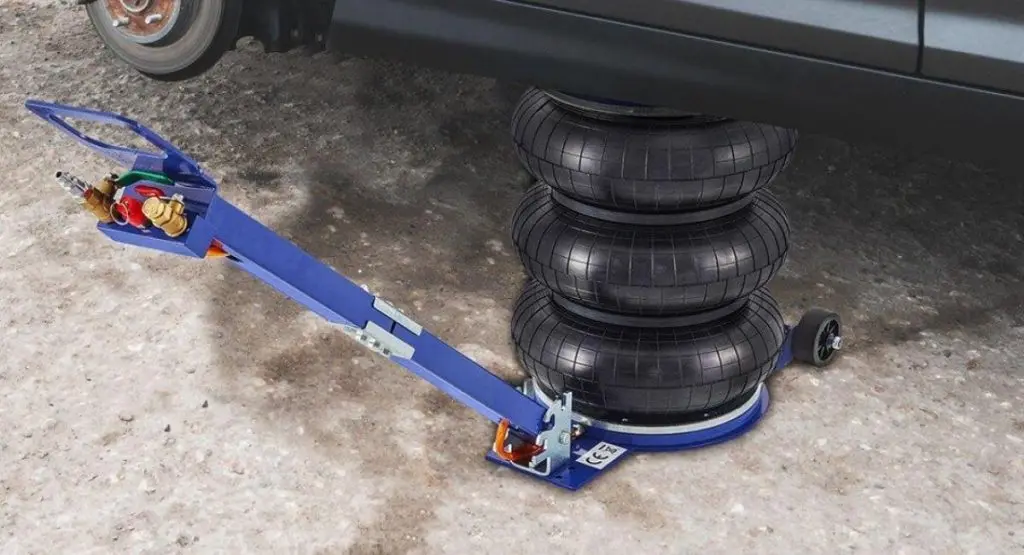
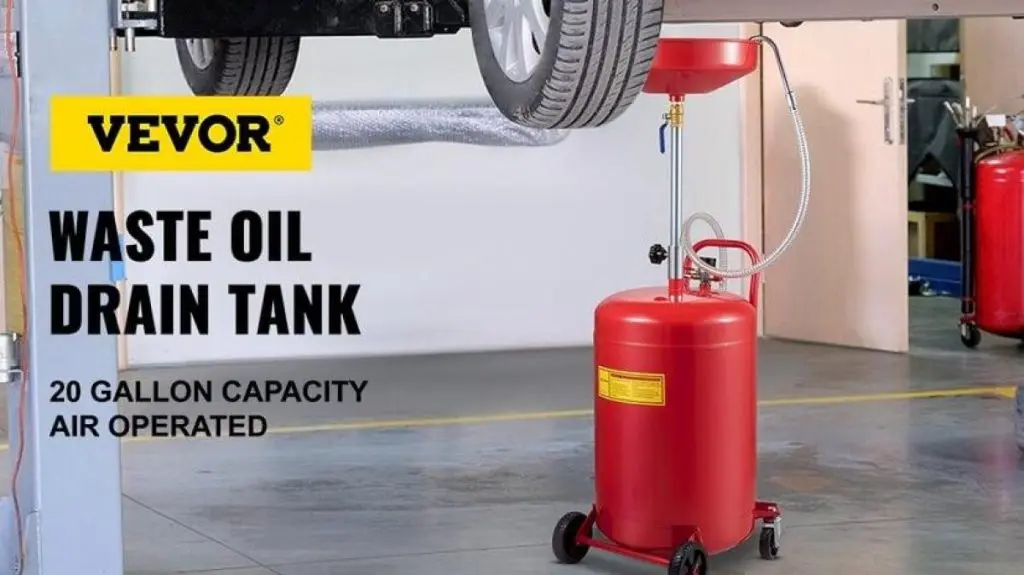
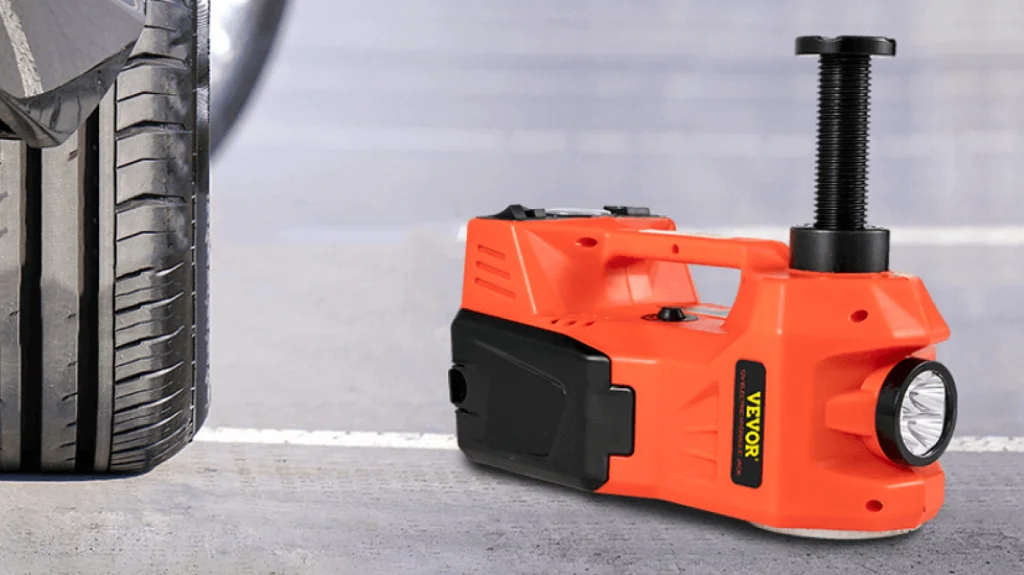
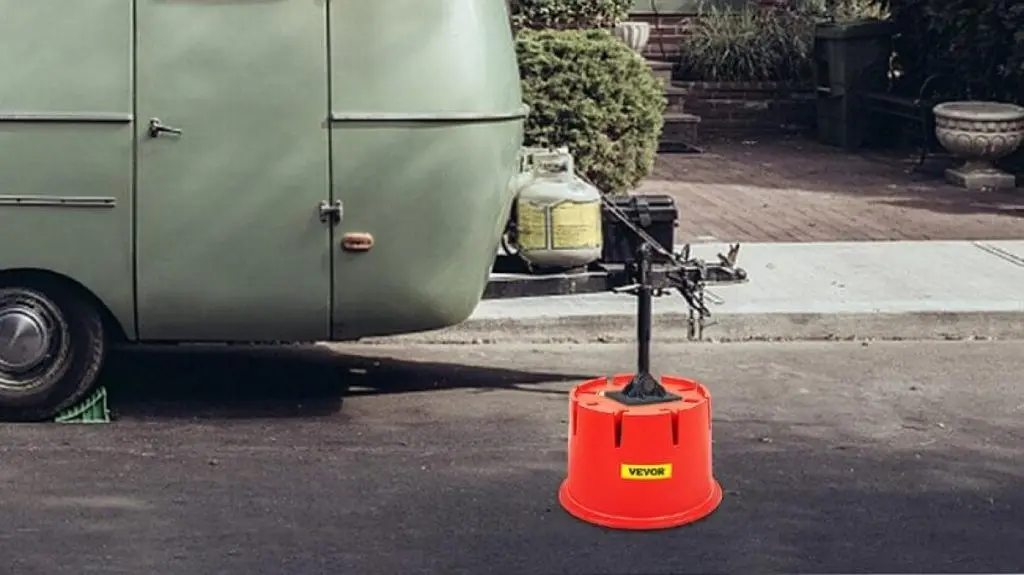
Can the controller be adapted somehow (by connecting a CR 2032 for example) to keep time when it is completely disconnected from power ?
Adapting a diesel heater’s controller to maintain time when disconnected from power by connecting a CR2032 battery is theoretically possible but would require custom modifications. This involves integrating a battery holder and ensuring the controller circuit can draw power from the battery without damaging it or the controller itself. Such modifications would need to consider the voltage and current requirements of the controller’s clock mechanism. It’s advisable to consult with an electronics expert for guidance on making such modifications safely and effectively.